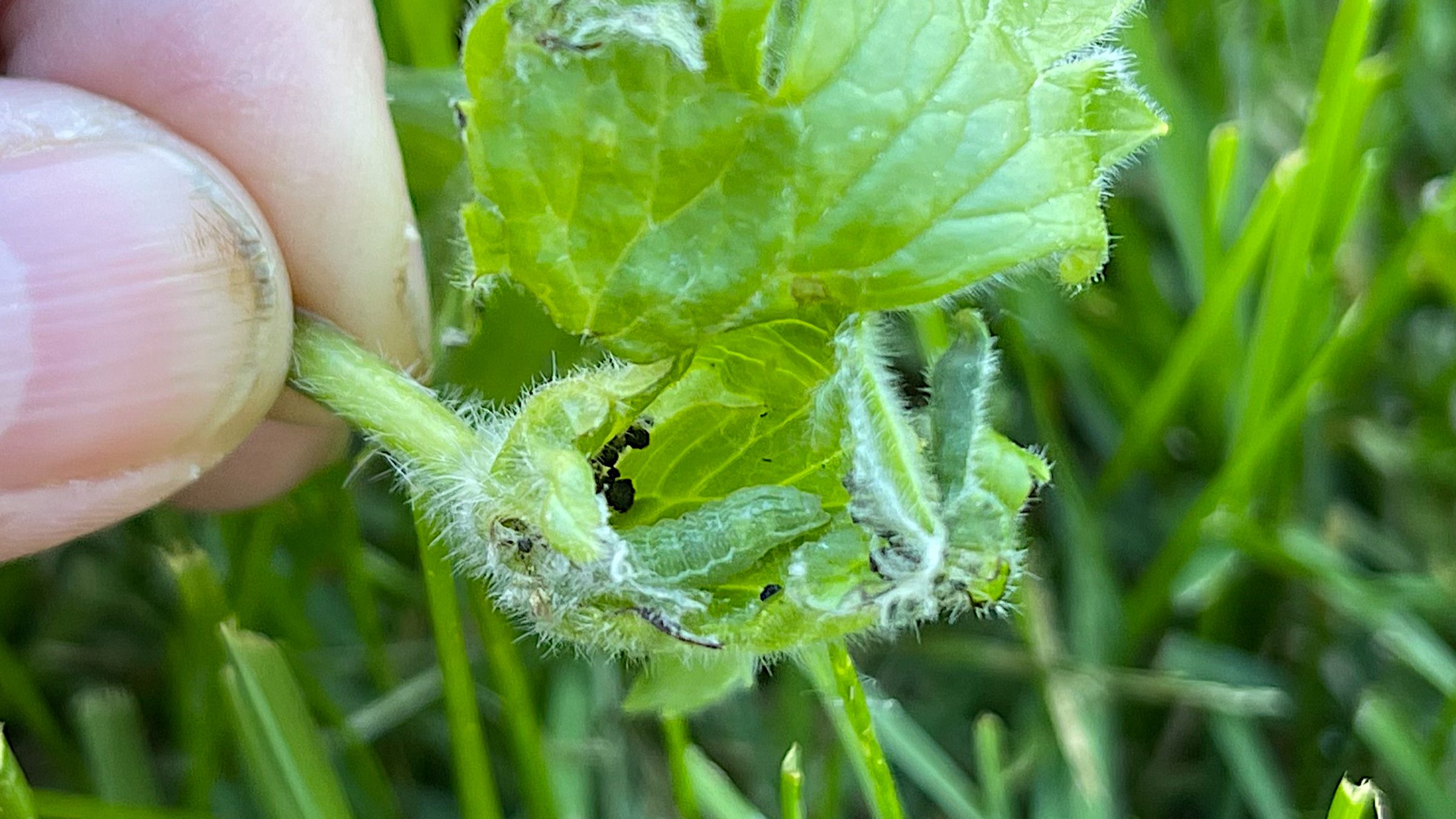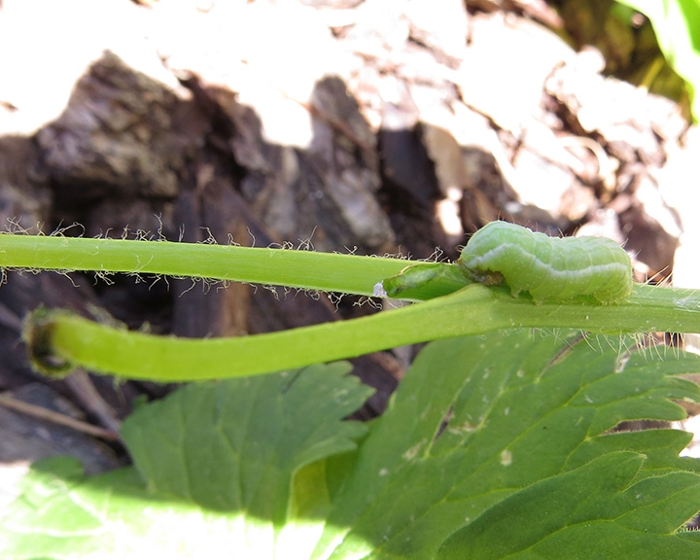Slugs and snails are the primary pests that eat delphinium plants. They cause significant damage by chewing on the leaves and stems.
Delphiniums are stunning, tall perennials known for their vibrant spikes of flowers. Gardeners often face challenges in protecting these beautiful plants from pests. Slugs and snails are the main culprits that feast on delphiniums, especially during damp conditions. These pests can quickly decimate young plants, leaving gardeners frustrated.
It’s crucial to identify and manage these pests early to ensure healthy growth. By implementing effective control methods, you can enjoy the full beauty of your delphiniums. Regular monitoring and timely intervention are essential in maintaining a pest-free garden.
The Delphinium Dilemma
Delphiniums can be harmed by many pests. Holes in leaves are a common sign. You may also notice chewed stems and wilting flowers. Sticky residue on leaves can indicate pest presence. Look for small insects hiding under leaves.
Aphids and slugs are frequent delphinium pests. Aphids suck sap from the plant. Slugs chew the leaves, leaving holes. Caterpillars can also be a problem. They munch on leaves and stems. Spider mites cause yellow spots on leaves. Leaf miners create tunnels in the leaves.

Credit: gardeningwithsharon.com
The Usual Suspects
Slugs and snails come out at night. They love to eat delphinium leaves. They leave holes in the leaves and slimy trails behind. These pests can cause a lot of damage quickly. Using barriers or traps can help control them. Hand-picking them off the plants is also effective.
Caterpillars chew on delphinium leaves. They can strip a plant of its foliage. These pests are often green and blend in well. Checking the plants daily can help spot them early. Using organic pesticides can keep caterpillar numbers down. Encouraging birds to visit the garden can also help.
Aphids: The Sap Suckers
Aphids are tiny insects that harm plants. They are often green, black, or white. Aphids suck sap from leaves, stems, and flowers. This causes plants to weaken and wilt. Leaves might curl, yellow, or drop off. Sticky honeydew on plants is another sign of aphids. Ants are often attracted to this honeydew. Look under leaves for clusters of aphids.
Aphids have a short life cycle. Females give birth to live young without mating. This happens many times in a season. Winged aphids help spread the population. Eggs are laid in the fall and hatch in spring. The cycle starts again.
Beetles And Borers
Japanese Beetles are a common pest for delphiniums. These beetles have a shiny, metallic green body. They also have copper-colored wings. They eat leaves and flowers. This can cause severe damage to delphiniums. They are most active during warm months. Japanese Beetles lay eggs in the soil. The larvae also feed on plant roots. Controlling them early is important.
Borers are another serious pest for delphiniums. These pests burrow into the stems. They live inside the plant. This makes them hard to spot. Borers can cause the plant to wilt. They also weaken the stems. Stems may break easily. Borers are usually the larvae of certain moths. Keeping plants healthy can help prevent borer attacks.
Mites And Their Microscopic Mayhem
Mites can cause big problems for delphinium plants. They are tiny and hard to see. Leaves may turn yellow or get brown spots. Sometimes, leaves curl up or look dusty. It’s important to check plants often. Healthy plants can fight mites better.
Natural predators like ladybugs can help. Spraying water on leaves can wash mites away. Neem oil is also good for control. Make sure to keep the garden clean. Remove old leaves and plant debris. This keeps mites away. Regular checks are key to keeping plants safe.

Credit: www.instagram.com
Fungal Fiends
Powdery mildew is a common fungus. It affects many plants, including delphiniums. White spots appear on leaves, stems, and flowers. These spots can spread quickly. The plant may look dusty or dirty. Powdery mildew thrives in warm, dry conditions. It can weaken the plant over time. Affected plants may grow slower. They may produce fewer flowers. Keeping the garden clean helps prevent this fungus.
Root rot is another fungal issue. It lives in the soil and attacks roots. Infected plants may wilt or turn yellow. The roots become soft and brown. Root rot likes wet, poorly drained soil. It can kill the plant if not treated. Use well-drained soil to avoid root rot. Water plants properly and avoid overwatering.
Natural Defenses
Delphiniums have natural toxins that repel many pests. These toxins are called alkaloids. They make the plant taste bad to insects. Some pests stay away from delphiniums because of this. Alkaloids help keep the plant safe.
Beneficial insects can protect delphiniums. Ladybugs and lacewings eat harmful pests. They help keep the garden healthy. Attract these insects by planting flowers like daisies and yarrow. These flowers provide food for the beneficial insects. This helps keep your delphiniums safe.

Credit: gardening.usask.ca
Combat Strategies
Use beneficial insects like ladybugs. They eat harmful pests. Neem oil can also help. Spray it on the plants. Garlic spray works well too. It repels many pests. Hand-picking pests can be effective. Do this early in the morning.
Chemical solutions should be the last choice. They may harm other plants. Insecticidal soaps can be used. These are less harmful. Follow the instructions on the label. Use sparingly to protect the environment.
Preventive Measures
To protect delphiniums from garden pests, regular inspection and early intervention are essential. Slugs and snails commonly feast on these plants, causing significant damage. Employing natural predators and organic repellents can effectively safeguard your garden.
Cultivation Practices To Deter Pests
Delphiniums grow best with good air circulation. Space plants far apart to avoid crowding. Water plants at the base to keep leaves dry. Wet leaves attract pests. Remove dead leaves and debris to keep pests away. Use organic mulch to deter pests. Rotate crops each year to prevent soil pests.
Choosing Resistant Delphinium Varieties
Some delphinium varieties resist pests better. Choose disease-resistant varieties for fewer problems. Ask at your local garden center for resistant types. Planting resistant varieties reduces the need for chemicals. Healthy plants resist pests better. Strong plants can survive pest attacks.
Monitoring And Maintenance
Inspect your garden often to catch pests early. Look under leaves and around stems. Aphids and caterpillars love hiding there. Use a magnifying glass for tiny pests. Hand-pick visible pests to reduce damage. Early detection saves your plants.
Water delphiniums at the base, not on the leaves. This helps prevent mold and mildew. Healthy plants resist pests better. Use organic fertilizer to boost plant health. Avoid over-fertilizing, as it attracts pests. Balanced nutrients keep plants strong.
Frequently Asked Questions
What Pests Eat Delphinium Leaves?
Several pests, including slugs, snails, and caterpillars, commonly eat delphinium leaves. They can cause significant damage.
How To Protect Delphiniums From Pests?
Use organic pesticides, barriers, and regular inspections to protect delphiniums from pests. Handpicking pests can also help.
Do Aphids Attack Delphinium Plants?
Yes, aphids can attack delphinium plants. They suck sap from the leaves, causing them to curl and yellow.
Can Slugs Damage Delphiniums?
Slugs can severely damage delphiniums. They often eat the leaves and stems, especially during wet conditions.
Conclusion
Identifying the pests that eat delphinium is crucial for protecting your garden. Regular monitoring helps in early detection. Using natural remedies can save your plants. By understanding these pests, you can maintain a healthy garden. Stay vigilant and keep your delphiniums thriving.
Happy gardening!
